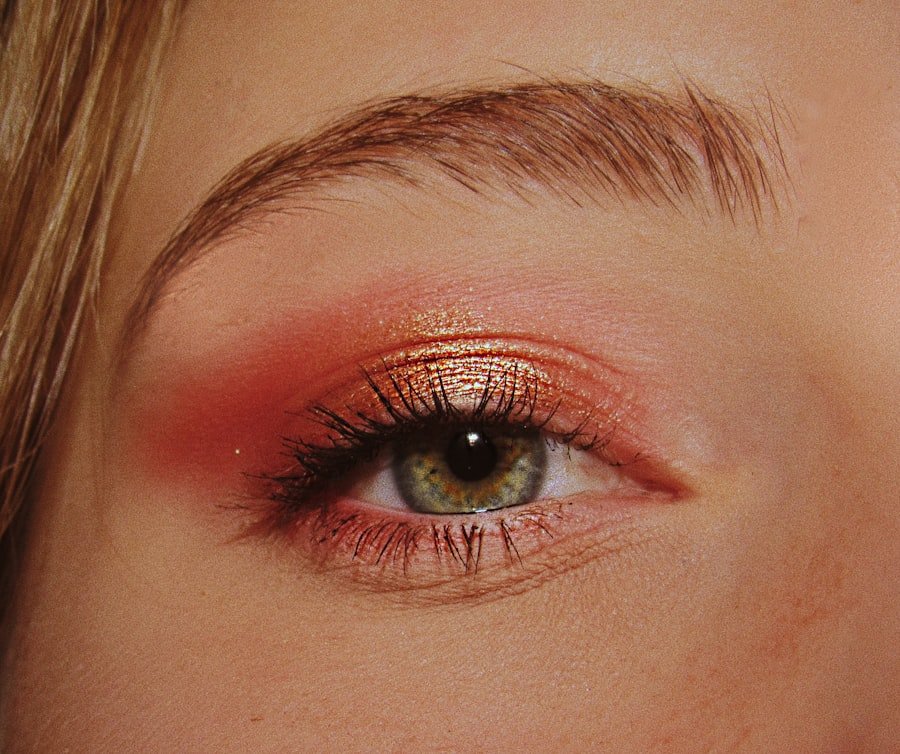A fashion influencer agency is a company that specializes in connecting brands with influential individuals in the fashion industry who have a large following on social media platforms. These agencies act as intermediaries, facilitating collaborations between brands and influencers to create effective marketing campaigns. Influencer marketing has become increasingly important in the fashion industry as consumers are turning to social media for inspiration and recommendations when it comes to their style choices.
Influencer marketing allows brands to tap into the trust and credibility that influencers have built with their followers. By partnering with influencers, brands can reach a wider audience and increase their brand awareness. Fashion influencer agencies play a crucial role in this process by identifying the right influencers for a brand’s target audience and managing the collaboration process from start to finish.
Key Takeaways
- A fashion influencer agency connects brands with influential individuals in the fashion industry to promote their products or services.
- Working with a fashion influencer agency can increase brand awareness, reach new audiences, and improve brand credibility.
- When choosing a fashion influencer agency, consider their experience, reputation, and the types of influencers they work with.
- Content creation agencies play a crucial role in influencer marketing by creating high-quality content that resonates with the target audience.
- Influencer campaigns can take many forms, including sponsored posts, product reviews, and social media takeovers. Measuring the success of these campaigns is essential to determine ROI and make data-driven decisions.
Benefits of Working with a Fashion Influencer Agency
1. Increased brand awareness and reach: One of the main benefits of working with a fashion influencer agency is the ability to reach a larger audience. Influencers have built a loyal following who trust their recommendations and are more likely to engage with content that features products or brands they endorse. By partnering with influencers, brands can leverage their reach and increase their brand awareness among their target audience.
2. Authenticity and credibility: Influencers are seen as authentic voices in the fashion industry, and their recommendations carry weight with their followers. When an influencer promotes a brand or product, it is perceived as a genuine endorsement rather than traditional advertising. This authenticity helps to build trust and credibility for the brand, which can lead to increased customer loyalty and sales.
3. Cost-effective marketing strategy: Compared to traditional advertising methods, influencer marketing can be a cost-effective strategy for brands. Instead of spending large amounts on TV or print ads, brands can allocate their marketing budget towards collaborating with influencers who have a highly engaged audience. This targeted approach allows brands to maximize their return on investment and reach a more relevant audience.
4. Access to a diverse pool of influencers: Fashion influencer agencies have access to a wide range of influencers with different styles, niches, and demographics. This diversity allows brands to find influencers who align with their brand values and target audience. Whether a brand is looking to target a specific age group, gender, or geographic location, a fashion influencer agency can help identify the right influencers to reach that audience.
5. Expertise in influencer marketing: Fashion influencer agencies specialize in influencer marketing and have extensive knowledge and experience in this field. They understand the nuances of working with influencers, from negotiating contracts to managing collaborations. By partnering with an agency, brands can benefit from their expertise and ensure that their influencer campaigns are executed effectively.
How to Choose the Right Fashion Influencer Agency for Your Brand
1. Define your goals and target audience: Before choosing a fashion influencer agency, it is important to clearly define your goals and identify your target audience. This will help you find an agency that specializes in reaching your specific target market and can create campaigns that align with your brand objectives.
2. Research and compare different agencies: Take the time to research and compare different fashion influencer agencies. Look at their portfolio of past collaborations, client testimonials, and case studies to get a sense of their track record and the results they have achieved for other brands. Consider factors such as the size of their influencer network, the types of influencers they work with, and their industry expertise.
3. Consider the agency’s experience and track record: Look for an agency that has experience working with brands in the fashion industry. A track record of successful collaborations is a good indicator of their ability to deliver results. Ask for references or reach out to brands they have worked with in the past to get feedback on their experience working with the agency.
4. Evaluate the agency’s communication and collaboration skills: Effective communication and collaboration are key to a successful influencer campaign. Look for an agency that is responsive, transparent, and has good communication skills. They should be able to clearly articulate their strategies and plans for your brand and be open to feedback and collaboration throughout the process.
5. Look for transparency and ethical practices: It is important to work with an agency that practices transparency and ethical standards in influencer marketing. They should have clear guidelines and policies in place to ensure that influencers disclose sponsored content and adhere to ethical practices. Avoid agencies that engage in unethical practices such as buying fake followers or engaging in undisclosed sponsorships.
The Role of a Content Creation Agency in Influencer Marketing
| Metrics | Description |
|---|---|
| Engagement Rate | The percentage of followers who interact with influencer’s content |
| Reach | The number of unique users who see influencer’s content |
| Impressions | The number of times influencer’s content is displayed |
| Conversion Rate | The percentage of followers who take a desired action after seeing influencer’s content |
| Brand Awareness | The level of recognition and recall of a brand among target audience |
| Content Quality | The level of creativity, originality and relevance of influencer’s content |
| ROI | The return on investment of influencer marketing campaign |
1. Importance of high-quality content in influencer marketing: High-quality content is essential in influencer marketing as it helps to capture the attention of the audience and convey the brand’s message effectively. Content creation agencies specialize in creating visually appealing and engaging content that aligns with the brand’s aesthetic and values. They can help elevate the quality of the content produced by influencers, ensuring that it is on-brand and resonates with the target audience.
2. How a content creation agency can enhance your influencer campaigns: A content creation agency can work closely with influencers to develop creative concepts, plan photo shoots, and produce high-quality content. They can provide guidance on styling, photography, and editing techniques to ensure that the content meets the brand’s standards. By collaborating with a content creation agency, brands can enhance the overall quality and consistency of their influencer campaigns.
3. Examples of successful collaborations between influencer and content creation agencies: Many brands have successfully collaborated with both influencers and content creation agencies to create impactful campaigns. For example, a fashion brand may partner with an influencer who has a large following on Instagram, while also working with a content creation agency to produce professional photoshoots for their website or print ads. This multi-faceted approach allows brands to leverage the strengths of both influencers and content creation agencies to create a cohesive and visually appealing campaign.
Types of Influencer Campaigns Offered by Influencer Agencies
1. Sponsored content: Sponsored content is one of the most common types of influencer campaigns. Brands pay influencers to create content that features their products or services. This can include social media posts, blog posts, videos, or live streams. Sponsored content allows brands to reach a wider audience and showcase their products in an authentic and engaging way.
2. Product reviews and endorsements: Brands often send their products to influencers for review or endorsement. Influencers will try out the products and share their honest opinions with their followers. This type of campaign can help build trust and credibility for the brand, as consumers value the opinions of influencers they follow.
3. Social media takeovers: Social media takeovers involve influencers taking control of a brand’s social media accounts for a specified period of time. During the takeover, the influencer will create and share content on behalf of the brand, giving their followers a behind-the-scenes look at the brand’s products or events. This type of campaign can help increase brand awareness and engagement on social media platforms.
4. Event collaborations: Brands often collaborate with influencers for events such as fashion shows, product launches, or store openings. Influencers can help generate buzz and excitement around the event by sharing their experiences with their followers. This type of campaign can help drive attendance and create a sense of exclusivity for the brand.
5. Influencer gifting programs: Some brands have influencer gifting programs where they send free products to influencers in exchange for exposure on their social media platforms. This type of campaign can be a cost-effective way to reach a larger audience and generate buzz around new product launches.
How to Measure the Success of Your Influencer Campaign

1. Define your key performance indicators (KPIs): Before launching an influencer campaign, it is important to define your key performance indicators (KPIs) to measure the success of the campaign. This could include metrics such as reach, engagement, website traffic, sales, or brand sentiment. By setting clear goals and KPIs, you can track and evaluate the effectiveness of your influencer marketing efforts.
2. Use analytics tools to track and analyze your campaign’s performance: There are various analytics tools available that can help you track and analyze the performance of your influencer campaigns. These tools can provide insights into metrics such as reach, engagement, click-through rates, and conversions. By analyzing this data, you can identify which influencers or types of content are driving the most results and make data-driven decisions for future campaigns.
3. Evaluate the ROI of your influencer marketing efforts: To measure the return on investment (ROI) of your influencer marketing efforts, you need to compare the costs of the campaign with the results achieved. This could include factors such as increased brand awareness, website traffic, sales, or customer acquisition. By calculating the ROI, you can determine the effectiveness and profitability of your influencer campaigns.
Collaborating with Influencers: Dos and Don’ts
1. Establish clear expectations and guidelines: It is important to establish clear expectations and guidelines with influencers before starting a collaboration. Clearly communicate your brand values, campaign objectives, and any specific requirements or restrictions. This will help ensure that the content created by influencers aligns with your brand image and resonates with your target audience.
2. Respect the influencer’s creative freedom: Influencers have built their following by creating content that resonates with their audience. It is important to respect their creative freedom and allow them to create content that feels authentic to their personal style and voice. Avoid micromanaging or dictating every aspect of the content creation process, as this can hinder the authenticity and creativity of the collaboration.
3. Avoid micromanaging or over-promoting your brand: While it is important to provide guidelines and expectations, it is equally important to avoid micromanaging or over-promoting your brand. Influencer marketing is most effective when it feels organic and genuine. Allow influencers to incorporate your brand into their content in a way that feels natural and authentic to their audience.
4. Provide fair compensation and incentives: Influencers invest time and effort into creating content and promoting your brand. It is important to provide fair compensation for their work. This could include monetary compensation, free products, or exclusive experiences. In addition to compensation, consider providing incentives such as affiliate programs or exclusive discounts for their followers to further incentivize their promotion of your brand.
5. Avoid unethical practices such as fake followers or undisclosed sponsorships: It is important to work with influencers who have genuine and engaged followers. Avoid working with influencers who engage in unethical practices such as buying fake followers or using undisclosed sponsorships. These practices can damage your brand’s reputation and lead to poor results from your influencer campaigns.
Case Studies: Successful Brand Collaborations with Influencer Agencies
1. Glossier x Into The Gloss: Glossier, a beauty brand, collaborated with Into The Gloss, a popular beauty blog, to create a successful influencer campaign. Into The Gloss featured Glossier products in their blog posts and social media content, generating buzz and driving traffic to the Glossier website. This collaboration helped increase brand awareness and sales for Glossier.
2. Nike x Serena Williams: Nike partnered with tennis superstar Serena Williams for a campaign promoting their tennis apparel line. Serena Williams shared photos and videos of herself wearing Nike products on her social media platforms, reaching her millions of followers. This collaboration helped position Nike as a leader in the tennis apparel market and increased brand loyalty among Serena Williams’ fans.
3. H&M x Chiara Ferragni: H&M collaborated with fashion influencer Chiara Ferragni to promote their new collection. Chiara Ferragni shared photos and videos of herself wearing H&M clothing on her social media platforms, generating excitement and anticipation among her followers. This collaboration helped drive traffic to H&M stores and increase sales of the collection.
These case studies highlight the importance of strategic collaborations between brands and influencers. By partnering with influencers who have a strong connection with their target audience, brands can leverage their influence and reach to create impactful campaigns.
The Future of Influencer Marketing: Trends to Watch Out For
1. The rise of micro-influencers and nano-influencers: Micro-influencers and nano-influencers, who have smaller but highly engaged followings, are becoming increasingly popular in influencer marketing. Brands are recognizing the value of these influencers in reaching niche audiences and driving authentic engagement. As the market becomes saturated with influencers, brands are turning to micro-influencers and nano-influencers for more targeted and effective campaigns.
2. The importance of diversity and inclusivity in influencer marketing: Consumers are demanding more diversity and inclusivity in influencer marketing. Brands that embrace diversity and work with influencers from different backgrounds, ethnicities, body types, and genders are more likely to resonate with a wider audience. Inclusivity is not just a trend, but a necessary step towards creating a more inclusive and representative fashion industry.
3. The impact of emerging technologies such as AI and VR on influencer marketing: Emerging technologies such as artificial intelligence (AI) and virtual reality (VR) are expected to have a significant impact on influencer marketing. AI-powered tools can help brands identify the right influencers for their target audience, analyze data, and optimize campaigns. VR technology can create immersive experiences that allow consumers to virtually try on clothes or accessories before making a purchase. These technologies have the potential to revolutionize the way brands and influencers collaborate and engage with their audience.
4. The growing role of influencer marketing in e-commerce and social commerce: Influencer marketing is becoming increasingly integrated with e-commerce and social commerce platforms. Brands are leveraging influencers to drive traffic to their online stores, create shoppable content, and increase conversions. Social media platforms are also introducing features that allow users to make purchases directly from influencer posts, further blurring the lines between influencer marketing and e-commerce.
Why Your Brand Needs a Fashion Influencer Agency
In conclusion, working with a fashion influencer agency can provide numerous benefits for your brand. From increased brand awareness and reach to authenticity and credibility, influencer marketing has become an essential strategy in the fashion industry. By partnering with a reputable agency, brands can access a diverse pool of influencers, benefit from their expertise in influencer marketing, and create impactful campaigns that resonate with their target audience.
When choosing a fashion influencer agency, it is important to define your goals, research different agencies, consider their experience and track record, evaluate their communication skills, and look for transparency and ethical practices. Additionally, collaborating with a content creation agency can enhance the quality of your influencer campaigns by creating high-quality content that aligns with your brand’s aesthetic.
To measure the success of your influencer campaigns, define your key performance indicators (KPIs), use analytics tools to track and analyze your campaign’s performance, and evaluate the return on investment (ROI) of your influencer campaigns. KPIs can include metrics such as reach, engagement, conversions, and brand sentiment. By setting specific goals and tracking these metrics, you can determine the effectiveness of your influencer campaigns and make data-driven decisions for future campaigns. Analytics tools like Google Analytics, social media analytics platforms, and influencer marketing platforms can provide valuable insights into the performance of your campaigns. Additionally, evaluating the ROI of your influencer campaigns involves comparing the costs incurred with the benefits gained. This can be done by calculating the revenue generated from the campaign, the increase in brand awareness or customer acquisition, and any other relevant financial metrics. By regularly monitoring and evaluating these factors, you can optimize your influencer campaigns and ensure they are delivering a positive return on investment.
If you’re interested in learning more about the world of fashion influencer marketing agencies, you won’t want to miss this insightful article from Influencer Agency. They provide valuable insights into the industry and offer tips on how to effectively collaborate with fashion influencers. Check out their article here to gain a deeper understanding of the power and potential of influencer marketing in the fashion industry. Additionally, you can explore more articles on influencer marketing strategies and case studies on their website here.
FAQs
What is a fashion influencer marketing agency?
A fashion influencer marketing agency is a company that specializes in connecting fashion brands with social media influencers to promote their products or services.
What do fashion influencer marketing agencies do?
Fashion influencer marketing agencies help fashion brands identify and collaborate with social media influencers who have a large following and can promote their products to their audience. They also help manage the influencer campaigns and track their success.
Why do fashion brands use influencer marketing?
Fashion brands use influencer marketing to reach a wider audience and increase brand awareness. Influencers have a loyal following and can help promote products to their audience in an authentic way, which can lead to increased sales and brand loyalty.
How do fashion influencer marketing agencies find influencers?
Fashion influencer marketing agencies use various tools and platforms to find influencers, such as social media platforms, influencer databases, and networking events. They also use data analytics to identify influencers who have a high engagement rate and are a good fit for the brand.
What are the benefits of using a fashion influencer marketing agency?
Using a fashion influencer marketing agency can save time and resources for fashion brands, as the agency handles the influencer outreach, campaign management, and tracking. It can also lead to more successful campaigns, as the agency has expertise in identifying and working with influencers who can effectively promote the brand.





